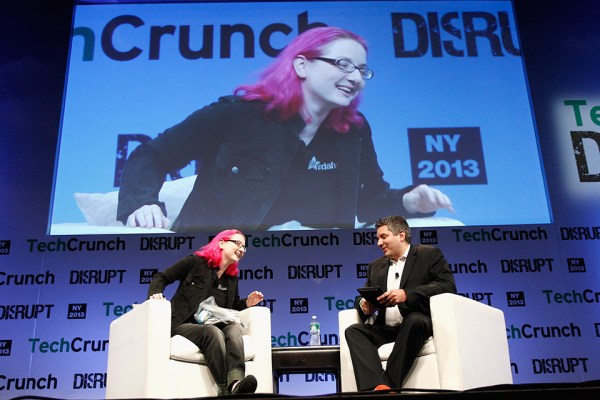There’s a long-held notion that China should be the go-to place for those in need of inexpensive manufactured products, but some prominent makers don’t buy it. Our own John Biggs sat down with Adafruit Industries founder Limor Fried (perhaps better known as Lady Ada) for a chat on the Disrupt NY stage that quickly turned to deal with the benefits of manufacturing hardware close to home.
When Adafruit needs to make some injection-molded cases, they don’t run to China — they turn to an experience Canadian supplier. The same goes for the multitudes of printed circuit boards that Adafruit needs, except they reach out to a company in Colorado instead. One would imagine that the end results aren’t quite as cheap as if Adafruit has just linked up with Chinese vendors, but Fried says the price difference isn’t as substantial as it used to be.
“If you’re a small company, the risk is very high,” she noted, before pointing out that rising wages in China are contributing to a shrinking gap between products crafted in Asia and in North America.
Adafruit’s general preference for North American manufacturers is mostly because it’s much easier to have trusted people on the ground to make sure things are going as intended — there’s a certain level of ambiguity that comes into play when smaller businesses place an order to a supplier halfway across the globe and trust that things are completed as planned. These sorts of arguments aren’t exactly new — Makerbot founder and CEO Bre Pettis said that makers who produce relatively small 50,000 to 100,000 unit product runs were better off keeping the manufacturing process in the United States because of the benefits of proximity.
Adafruit’s approach to manufacturing isn’t just a function of what it makes, it’s based on the company’s vision. In case it wasn’t already clear Adafruit Industries definitely isn’t your average electronics manufacturer — Fried refers to Adafruit as a “tutorial company or an educational company with a gift shop at the end.” It deals with plenty of open-source hardware projects, and the team provides its users with the necessary CAD files and instructions to get those homebrew gizmos up and running. In theory, a person interested in cobbling together an Adafruit project doesn’t need to buy anything from them, but Adafruit has done well financially by providing those parts just to lighten the load on prospective tinkerers.
It’s a refreshing take on the process of hardware production and sales, and it seems to be doing rather well — Adafruit Industries saw $4.5 million in sales in 2011, and Fried was named Entrepreneur Magazine’s Entrepreneur of the Year at the end of 2012.
